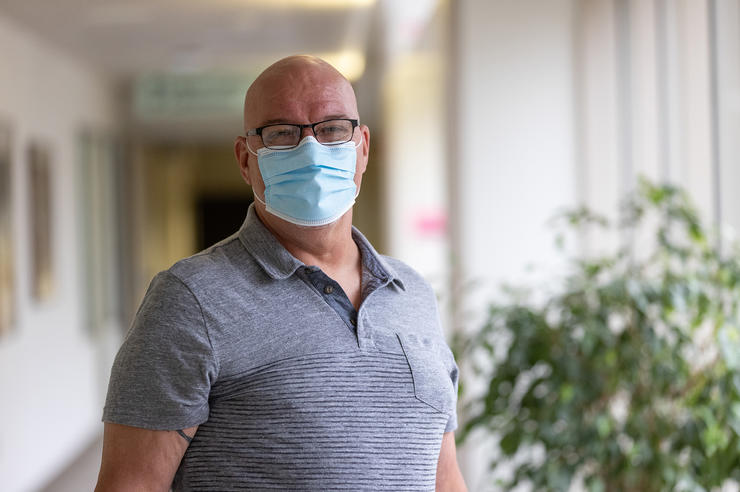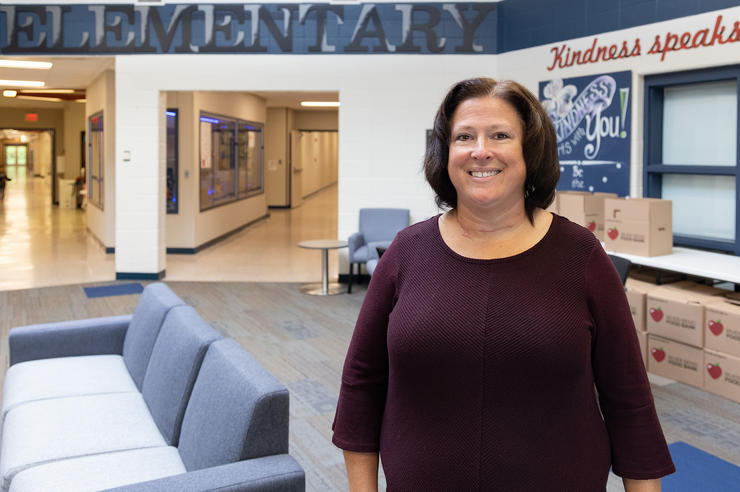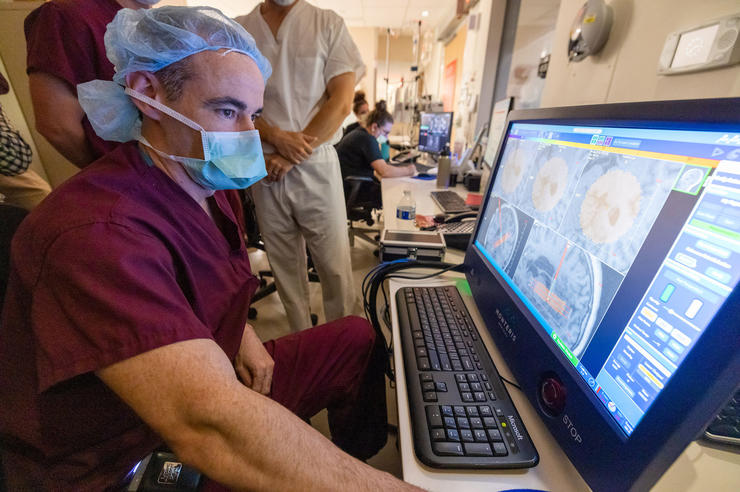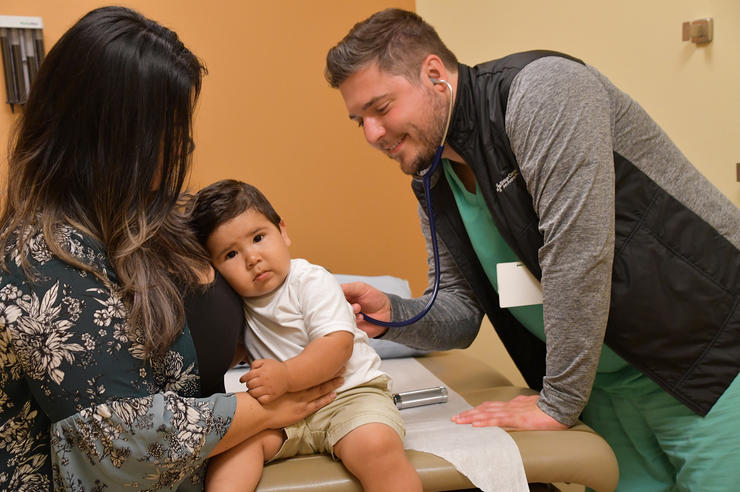Lessons from the Post-COVID-19 Clinic
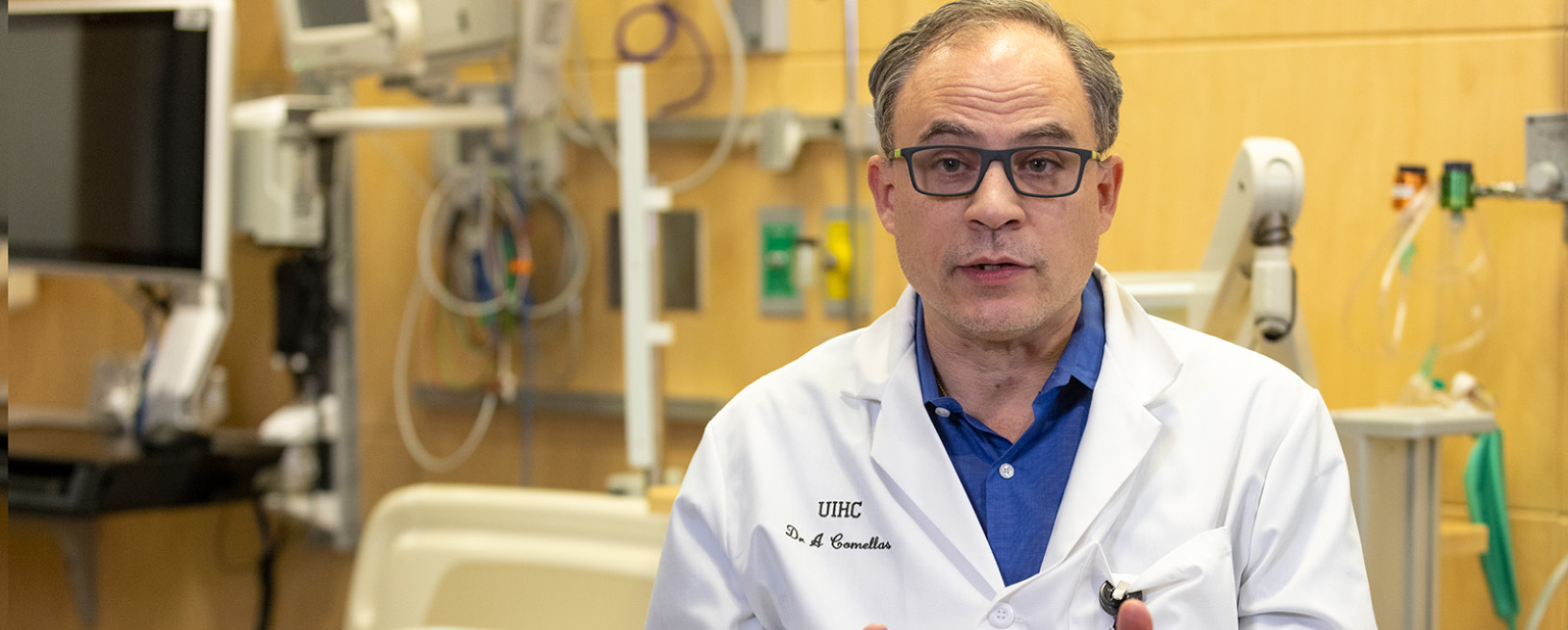
What surprises Alejandro Comellas, MD, most about COVID-19 is the unpredictability of the disease, particularly its long-term repercussions. Some people recover in a matter of days, while others have persistent symptoms that linger for months or longer.
Since summer 2020, Comellas and a team of providers in the University of Iowa Post-COVID-19 Clinic have seen over 500 patients with varying complexities after their initial COVID-19 diagnosis. The sheer volume of patients they’ve seen, coupled with a patient research registry, is helping them better identify and track this new set of disorders, also called long COVID-19.
What have you learned about long COVID-19 from your clinical work? Are there trends you’ve noticed among patients who come to the clinic?
The main discovery we have made is with our patients who come in with shortness of breath or other respiratory symptoms. When we do pulmonary function tests with these patients, they’re normal, and a regular computed axial tomography (CAT) scan is also typically normal. But if you ask a patient to exhale completely, and then you complete a CAT scan [called an expiratory scan], their lungs should be able to empty all the air. We’re finding little pockets where air is trapped and is not able to empty. This finding is consistent with small airways disease. This sometimes guides our treatments, and we would then prompt the patient to use an inhaler or have them go to pulmonary rehabilitation.
It’s important for the community to know that a normal pulmonary function test result does not rule out small airways disease. You need to do expiratory CAT scans.
The other major components of long COVID-19 are the neurocognitive problems, which include brain fog, depression, anxiety, and memory issues. The main thing we have learned is that patients are struggling with slowness in processing. Their ability to process information has slowed down from their baseline, which interferes with daily activities and tasks. With patients who have a lot of these symptoms, we refer them to the Behavioral Health Post-COVID-19 Clinic, where they can be assessed. There they can learn skills for managing their daily lives or receive further neurocognitive testing and support.
We have also seen a lot of weight gain in this population, which has prompted us to refer some of our patients to the Weight Management Clinic.
Do you mostly see patients in the Post-COVID-19 Clinic who were severely ill or had to be hospitalized during their initial infection?
Two-thirds of our patients were initially treated in an ambulatory setting. And a lot of our patients from the ambulatory setting are the ones who have developed chronic fatigue, neurocognitive impairment, or had changes in their CAT scan showing air trapping. Only one-third were in the hospital or intensive care unit (ICU). We do not know whether this is due to the severity of the disease, which could’ve caused these patients to mount a larger antibody response and helped with some of these post-COVID-19 symptoms, or whether it’s due to a treatment that they received in the hospital that helped.
Also, to this day, we have seen very few patients in our Post-COVID-19 Clinic who were vaccinated with two initial doses. Additionally, to this day, we have not seen anyone who received the booster vaccine.
Are you seeing improvement in these patients? Are there treatments for these long-term complexities?
Yes, some of them are improving. Sometimes they’re not getting completely back to where they were before getting sick, but I would say that they have shown improvement. It’s taking many, many months, sometimes a year, for some to improve.
With pulmonary function tests and lung imaging, we’ve seen many of our patients who were sick enough to be in the ICU recovering part of their lung function as well as improving their lung imaging after many months.
We realized we needed to get more specialists involved, and we needed to get rehabilitation involved. We started incorporating pulmonary rehabilitation, physical therapy, psychology, and psychiatry, and then we realized that the complexity was such that we needed coordination of care. So, we were able to hire a clinical nurse coordinator who has been instrumental in the care of our patients.
Why should patients with long COVID-19 come to UI Hospitals & Clinics?
A lot of patients feel like they are not being heard or that their symptoms are not real. That frustration really makes a lot of patients not even look for care. So, what we’re trying to do here in the Post-COVID-19 Clinic is to, first, recognize that what everybody is going through is real. We understand that this is something that’s affecting their daily lives, it’s taking a long time to recover, and that you could’ve had something very mild in the beginning with COVID-19 and now you’re suffering from post-COVID-19.
The collaborative nature at an academic institution has been instrumental for us to be able to have a clinic to provide access to these specialties.
